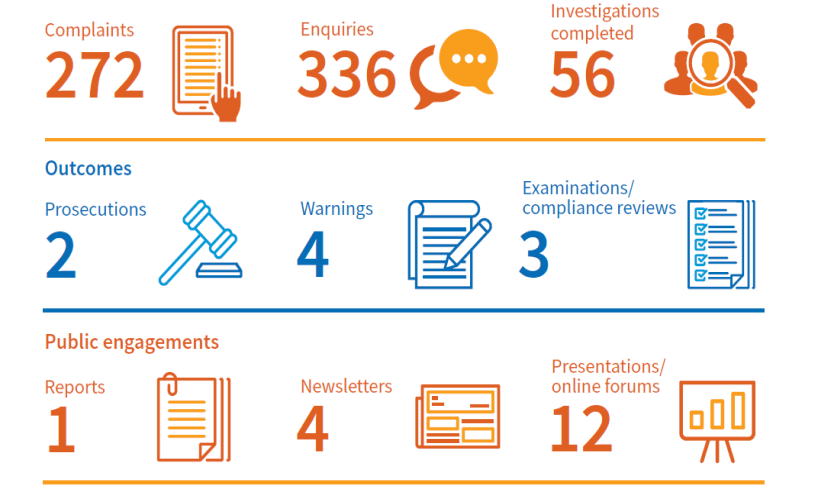The Local Government Inspectorate is the dedicated integrity agency for local government in Victoria, responsible for investigating offences and breaches under the Local Government Act 1989 and Local Government Act 2020 or examining any matter relating to a council or council operations. During council elections, the Inspectorate is the agency responsible for receiving, assessing and, where appropriate, investigating matters and offences provided for under the electoral provisions of the Act.
The Inspectorate’s work can be categorised under three main themes: responding to community need, ensuring compliance, and providing a guidance and education function. Reactive work includes responding to requests for information and enquiries, assessing complaints, conducting investigations and, in some cases, prosecutions. Proactive work includes council-specific governance examinations and reviews of systemic or thematic issues across the sector. Our guidance and education to the sector is generated by both reactive and proactive work outcomes and includes newsletters, presentations, reports and other communications.
The integrity system gives Victorians confidence in the state’s public sector because misconduct and corruption in councils and the Victorian public sector hurts us all. The Victorian integrity system consists of the Inspectorate, Independent Broad-based Anti-corruption Commission (IBAC), Victorian Ombudsman, Victorian Auditor-General’s Office, the Victorian Information Commissioner, and Commissions for the Victorian Public Sector, Judiciary and Human Rights and Equal Opportunity.
Explanation of key categories and terms
Complaints
A complaint is a matter lodged with or referred to the Inspectorate for assessment in its capacity as the dedicated integrity agency for local government in Victoria. Most of the complaints we receive relate to councils but not all complaints we receive fall within our remit.
Enquiries
These include relevant contacts with the Inspectorate other than recorded formal complaints. Enquiries may involve multiple contacts with the public but only a single reference is included here.
Investigations completed
When the Inspectorate receives a complaint, an assessment is conducted to determine the best course of action. Formal investigations are resource intensive, so we are only able to dedicate resources to a limited number of investigations at any given time. Considerations for allocating resources include the prospect of matters proceeding to prosecution or being the subject of a public report.
Prosecutions
The Chief Municipal Inspector is empowered by the Local Government Act to prosecute individuals in a court. This power is taken very seriously and prosecutions are only pursued under certain circumstances. The Inspectorate must consider whether there is a reasonable prospect of conviction, whether or not it is in the public interest and whether or not there is an alternative to prosecution that may be more appropriate.
Warnings
A warning is issued when a prima facie breach of the Act is substantiated, but circumstances show that a prosecution may not be warranted. Warnings given to a person are taken into account if any further substantiated complaints are made against the same person.
Complaint assessment
When the Inspectorate receives a complaint, it undergoes an initial assessment to determine, among other factors, if the allegations fit within its legislative remit or the matter should be transferred to another agency. A matter is not considered under investigation at this stage.
Prima facie
Refers to a criminal prosecution in which the evidence before a court is sufficient to prove the case unless there is substantial contradictory evidence presented during hearings.
Public interest disclosure
In some circumstances, a complaint may be considered as a public interest disclosure (previously known as a protected disclosure or ‘whistleblower’ complaint). If a complaint appears to show that a councillor or member of council staff has engaged or proposes to engage in improper conduct, this could constitute a public interest disclosure. These matters must be sent to IBAC so they can determine whether or not the protections under the public interest disclosure regime apply.
Updated


